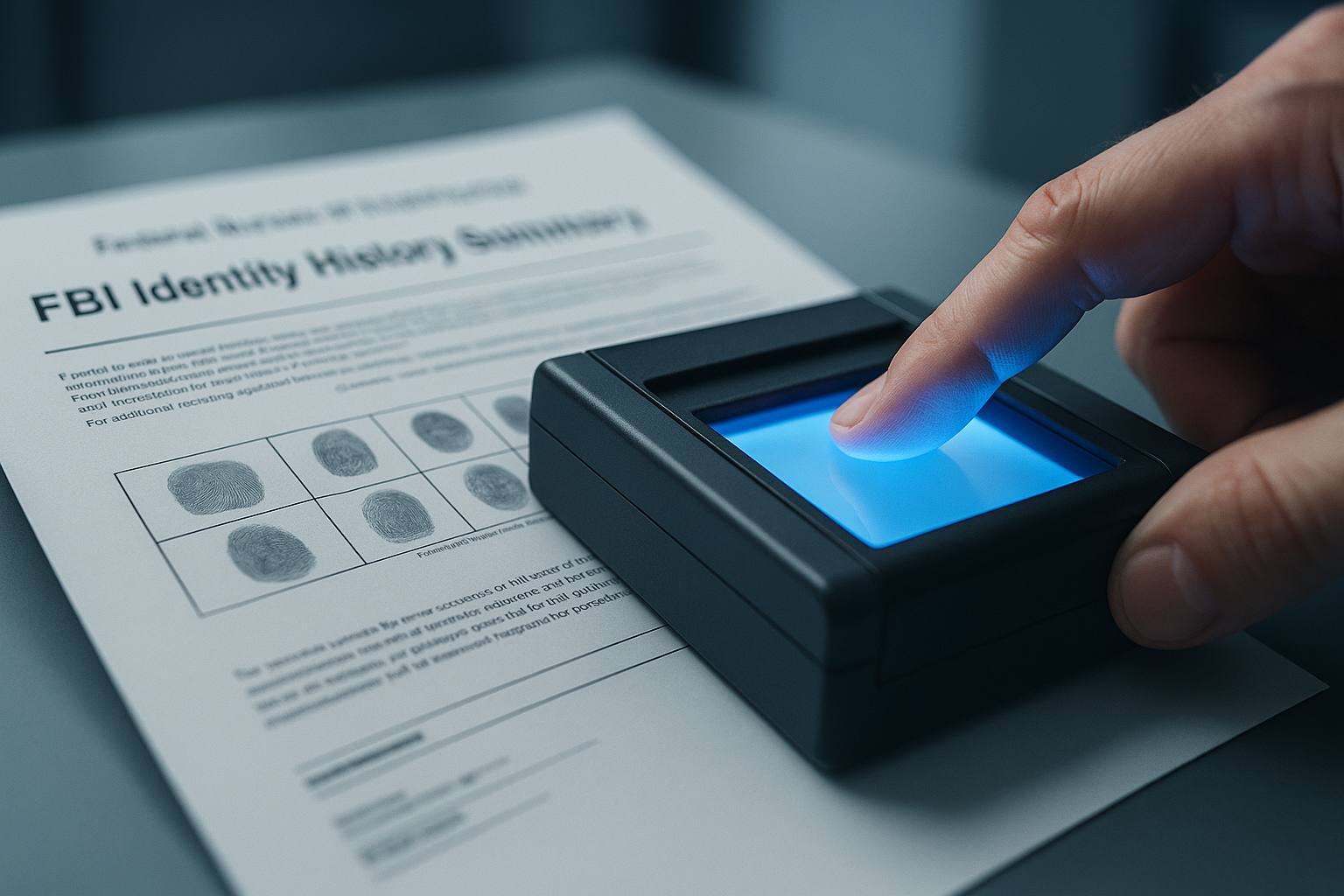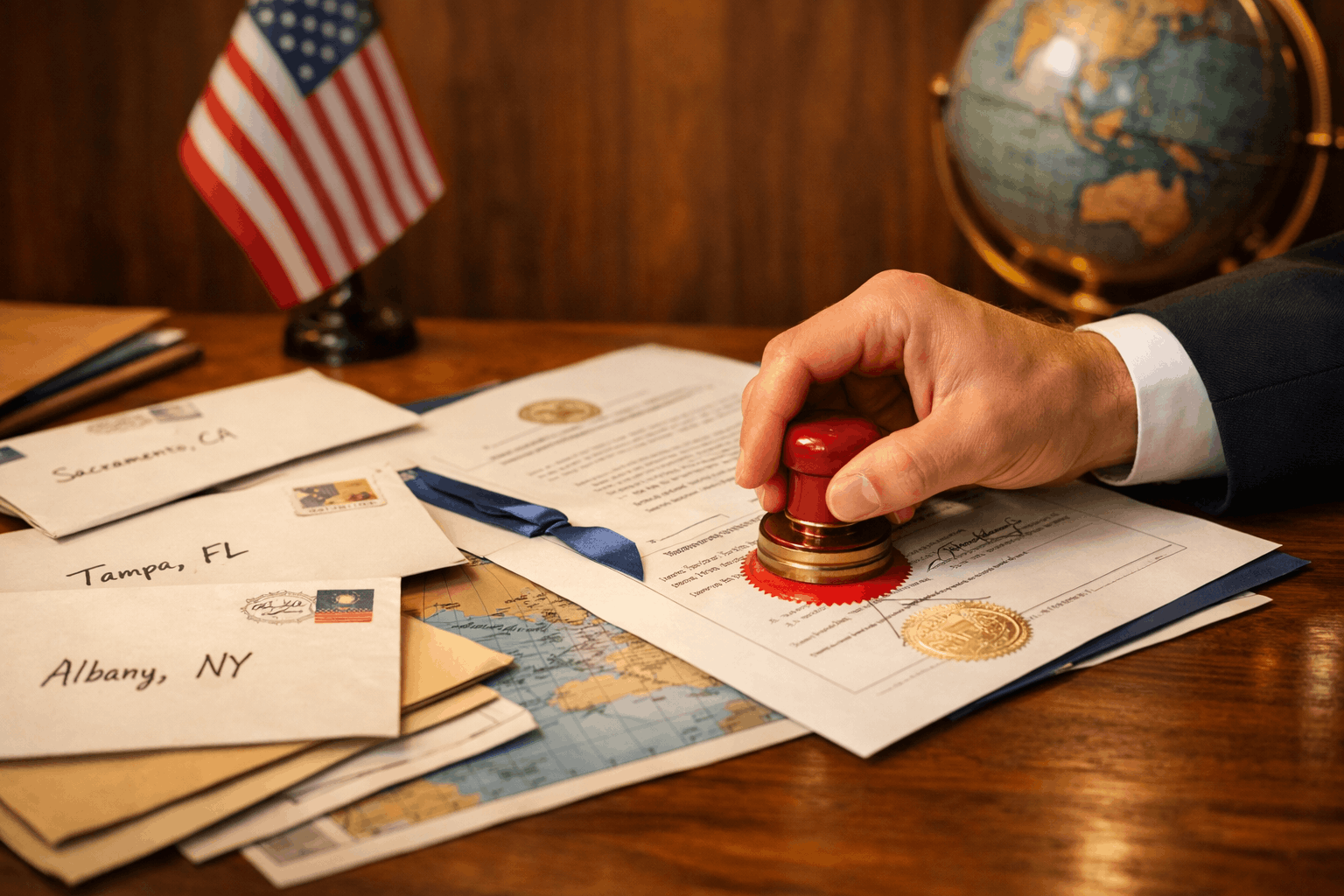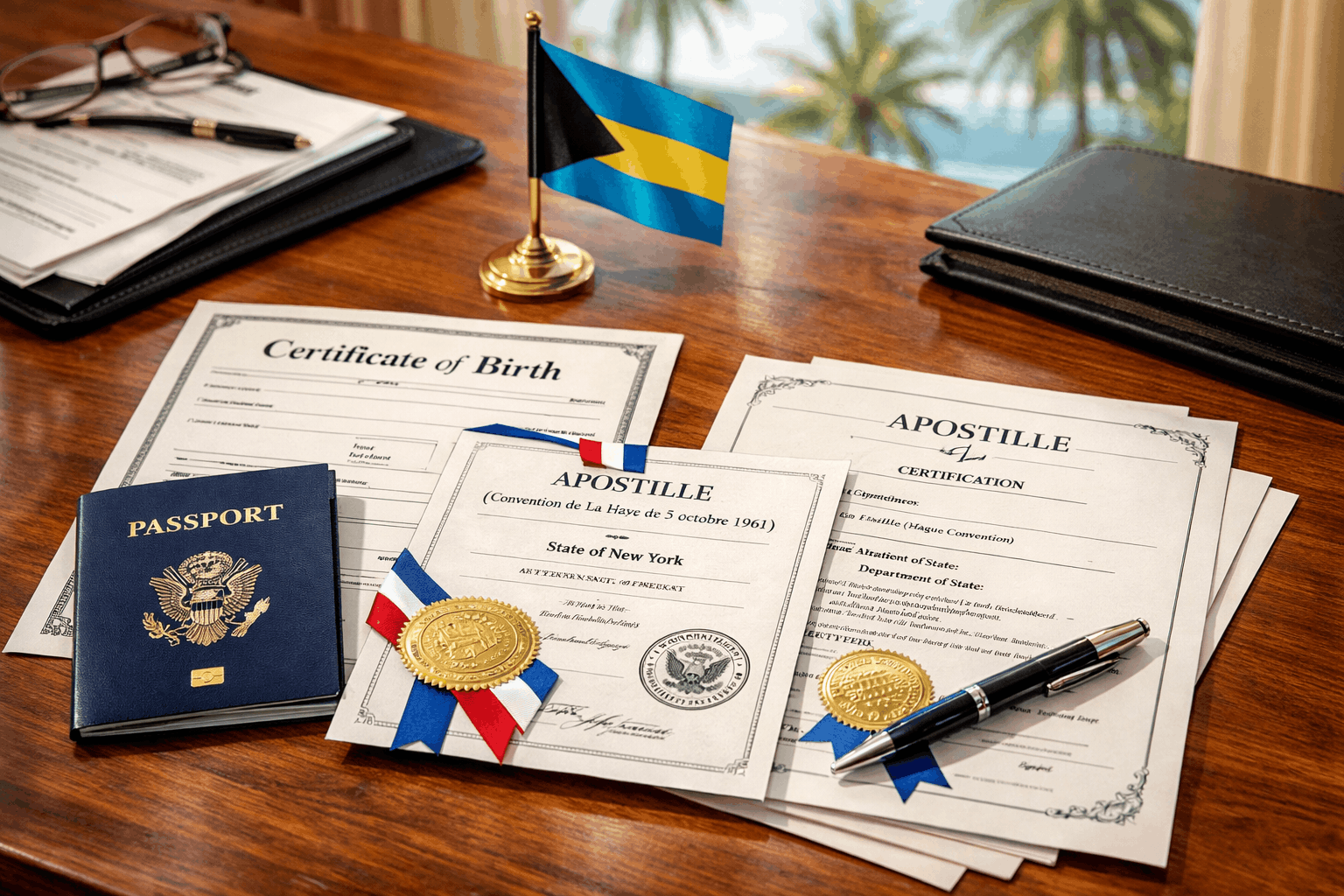
Common Reasons for FBI Background Check Delays
Looking at the “pending” status of your Identity History Summary Check is frustrating, especially when you have a deadline for work or business overseas. In case you’re wondering why a hold-up, we may have the answer for you here. This post will pull back the curtain on the reasons behind FBI background check delays and what you can do to speed up.
Why is My FBI Background Check Delayed?
To answer this question, you’ll need to examine several behind-the-scenes factors. Issues such as unclear fingerprints or legal holds can significantly slow things down, leading to an extended wait and sabotaging your plans. Here are some typical categories for a delayed check:
Incomplete or Incorrect Fingerprint Submissions
The FBI’s system often automatically rejects poor-quality fingerprints, such as smudged or partial ones. These prints will have to wait for manual processing and may require resubmission later, which takes much longer.
Record Mismatches and Identity Collisions
When your data in different databases doesn’t align, meticulous review is required. Furthermore, if you have the same name as someone with a criminal record, there’s a high chance the system may flag such a similarity as an “identity collision.” Both situations often result in extended processing time.
Backlogs at the FBI or National Archives
High volumes or staffing shortages can create a bottleneck due to the piled-up requests. Additionally, checks involving paper records from the National Archives will add significant time to the process.
Criminal Record Complexity or Sealing
If your record entails complex charges or a sealed legal history, it requires manual verification with various courts. This investigative step is time-consuming and potentially causes you to wait longer.
Interstate or Multi-Jurisdictional Checks
Coordination between different local databases is essential for records that span across states and jurisdictions. However, a single agency that is slow to respond might put a halt to the check.
Requests for Additional Documentation or Verification
Sometimes, the FBI requests additional information, such as clarification on a record. You’ll have to provide the required documents to resolve discrepancies, and the clock might be paused until then.
Outstanding Legal or Court Holds
When charges are pending or you’re serving a court-order sentence in the community, your FBI background check may also be delayed. The check will often resume after all legal matters are resolved or updated.
How FBI Background Check Delays Affect You
A delayed FBI background check doesn’t just hold back paperwork — it implies real-world consequences. The impact ranges from acquiring firearms to starting a new job to applying for a visa, anything that relies on a criminal clearance.
Firearm / FFL Transfers
A hold on a background check can interrupt firearm purchases or FFL transfers. Licensed dealers will potentially deny the sale when you can’t prove that you have a clear record, leaving you unable to obtain firearms across state borders.
Employment, Licensing & Government Clearance
Background check delays can freeze job placements, professional licenses, or government security clearances. For instance, your future employer requires an FBI report before onboarding you, so failing to submit it means hampering your career opportunities.
Immigration, Travel & Visa Applications
For visa and immigration applications, a criminal report is often a prerequisite step. Many embassies or consulates require a clear check before issuing visas or permits, and missing this crucial document leads to your application being turned down.
How to Avoid or Fix a Delayed FBI Background Check
While there’s no way to control every variable, you can take a proactive approach to fix a delayed FBI background check. With a little attention to detail, here’s how to speed up the process and keep your timeline moving.
Ensure High-Quality Fingerprint Submissions
Have your prints taken by an authorized technician to ensure the best quality. This can be done at a local participating U.S. Post Office for an additional fee. Cleaning your hands and applying your fingers with correct pressure may help make the submission readable on the first try.
Standardize & Verify Biographical Data Before Submission
Always verify that your full name, DOB, and SSN are consistent across all IDs and official records. A mismatch, like a missing middle name, can trigger scrutiny and a drawn-out process.
Monitor Status and Be Responsive to Requests
Continuously keep tabs on your application status and respond promptly to any requests from the agency. Ignoring an email from the FBI for additional information might put your check on the shelf.
Use Expedited or Priority Processing When Available
Third-party services offer an advantage when it comes to time-sensitive cases. The expert can remove potential setbacks and shave days off the turnaround time. Opt for these expedited options for a faster result without sacrificing security.
Clear Up, Seal, or Expunge Records Proactively
If you’re aware of a record, consult with a legal expert to have it resolved, sealed, or expunged before applying for a check. This helps reduce complexity and save ample time during the review stage.
Coordinate with Local & State Agencies Early
Sometimes, you may need to contact your local agencies for state-level clearances in advance. Gathering these records upfront allows you to solve issues or respond to inquiries that arise during the FBI investigation.
Stay Informed About System Upgrades & Policy Changes
Being aware of any updates on the system and policy is key to doing things right and ensuring your submission fulfills current standards. You can follow the FBI and approved channelers on social media and news outlets for the latest announcements.
Patience Pays Off, and Preparation Helps
Upon completing this post, we hope you know how to fix your delayed FBI background check. Requesting a criminal report demands patience, but by taking proactive steps, you can accelerate the wait time impressively. Whether applying for a license or accepting a job offer abroad, careful preparation and attentiveness will keep your stress levels low.
FAQ
Still have more questions about FBI checks? You might find the answer in this section.
How long does an FBI background check usually take?
An electronic submission takes 1–3 days. It’s usually longer for mail-in requests, often reaching 6 weeks without factoring in the time for postal delivery.
Can I check the status of my FBI check online?
Mostly yes, if you apply directly or through an approved channeler. You can receive notifications by email from the FBI or contact the service provider for status updates.
Do all delays mean there’s a criminal record?
No, delays might arise from backlogs or technical issues rather than a criminal history.
What can I do if my check is “pending” for an unusually long time?
Contact the agency or channeler that assisted you with the submission, and they can clarify the reason for the unusual delay. If requesting directly, you might need to call the CJIS division for inquiries.
How to speed up FBI background checks?
The best way is to follow our advice and stay clear of potential problems that cause delays, such as unclear fingerprints, incorrect personal data, and failing to respond on time. Utilize expert handling if your deadline is looming or you aren’t capable of navigating intricate requirements.
Do sealed or expunged records always cause delays?
Not always, but they may add time to the process due to manual reviews or additional verification with the relevant authorities. In cases beyond standard screening, federal laws require information to be disclosed even when sealed or expunged.





